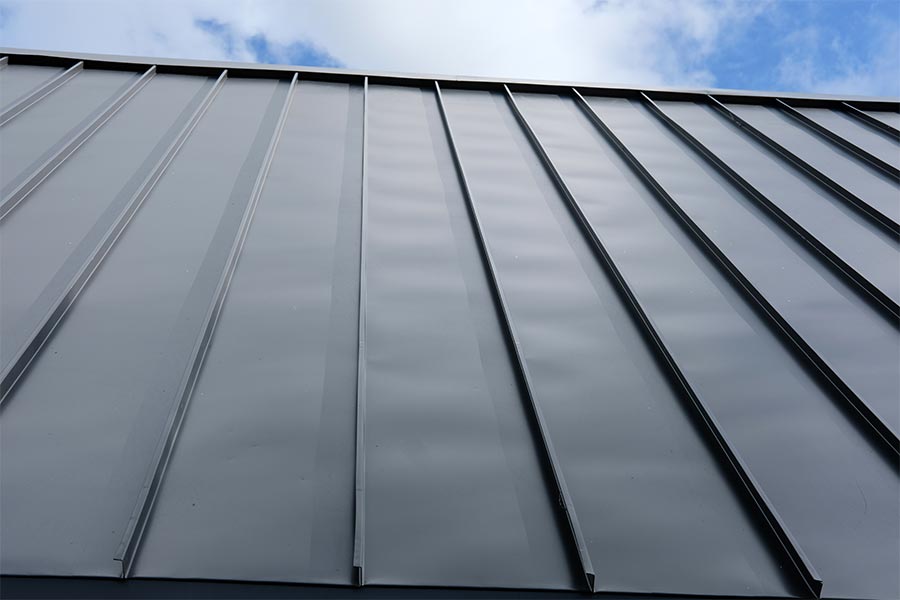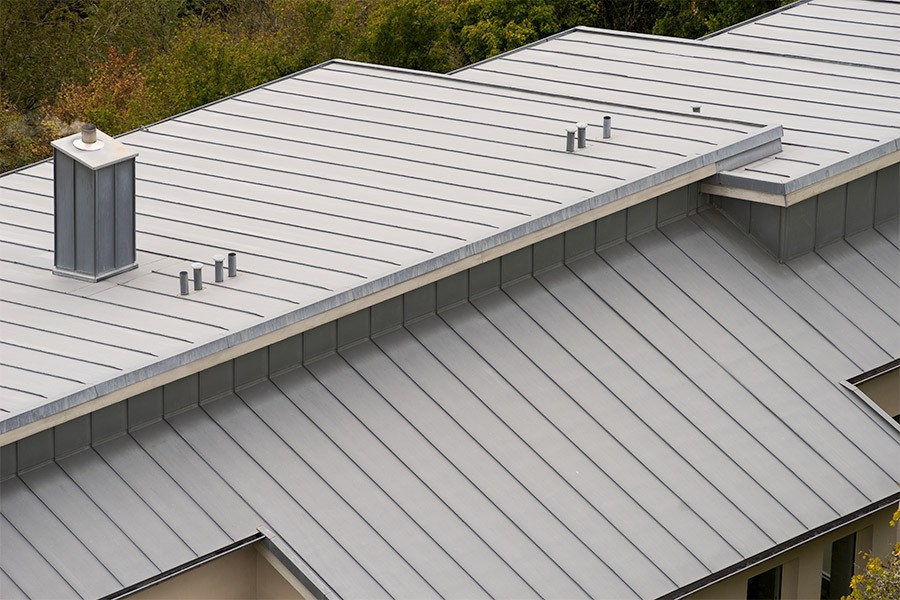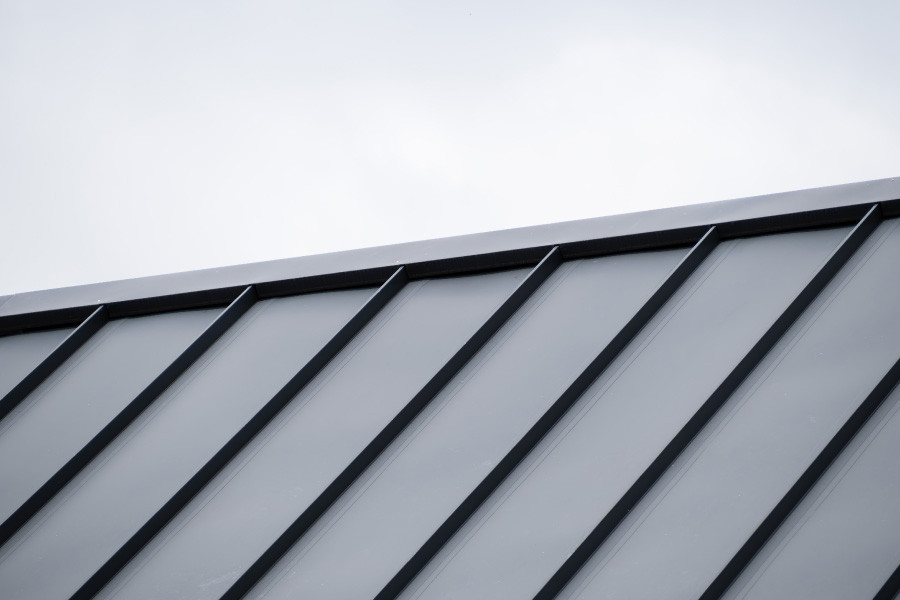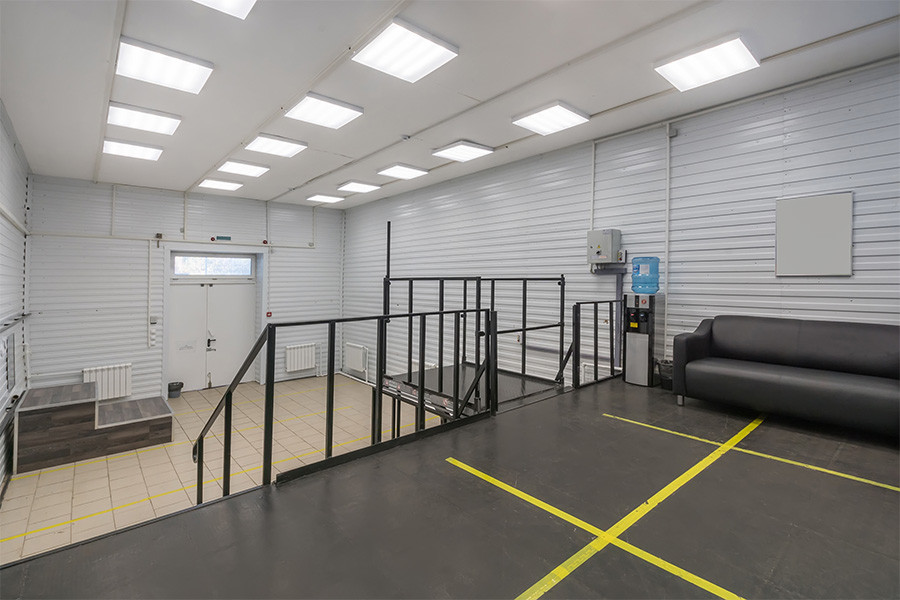The word “oil canning” often sends shudders down contractors’ spines or makes homeowners flinch. That’s because this minor deformation to metal panels is not only hard to avoid but can vary from project to project, making it hard to pin down a single cause.
But, we promise you, there’s nothing to be afraid of with oil canning! With metal roofs, it’s only natural for oil canning to appear. Most importantly, it isn’t a reason to reject metal roofing panels or categorize your metal roofing and siding project as a failure. Metal panels are incredibly durable and long-lasting, and this minor aesthetic issue does not impact the inherent value of your metal panels.
Read on to learn more about what oil canning is, our Bozeman metal roofing experts’ insights on the topic, and why oil canning is no reason to run to the nearest phone for a refund.
What is Oil Canning?
Oil canning is an aesthetic distortion that can appear on light-gauge, cold-rolled metal products. It usually appears as a waviness, rippling, or slight buckling on the broad section of a metal panel, whether the panel is used for roofing or siding. All types of metal products are impacted by oil canning, including aluminum, copper, steel, and zinc metal panels.
The intensity of the visual waviness depends on the type of metal, gauge, weather, color, finish, and even the angle from which the metal is viewed. So, the perception of oil canning can vary from person to person.

What Causes Oil Canning?
Oil canning cannot be boiled down to one singular cause; there are a number of factors that can cause a metal roof to experience oil canning. Here are a few of the primary ones we see in Montana:
1. Thermal contraction & expansion
Thermal contraction and expansion is one of the major reasons why metal roofs in Montana experience oil canning. When our temperatures swing from below zero at night to the upper 40s during the day, this sharp fluctuation in temperature causes metal panels to expand and contract. This movement can cause additional stress on panels, leading to oil canning.
2. Incorrect installation
Correct installation is crucial in every aspect of a metal roofing project, and sometimes mistakes in the installation can make oil canning more pronounced. Whether it’s using the wrong clips or driving a fastener in at the wrong angle, improper installation can add extra stress to metal panels, resulting in oil canning. Like any metal roofing project, make sure you follow the installation guide to mitigate any problems.
3. Choice in color and gloss
No matter what metal roof color or gloss you choose, you run the risk of developing oil canning. However, lighter paint colors and low-gloss finishes tend to show the oil canning effect less because they help reduce metal’s reflectivity, making any waviness less visible.
4. Improper handling or storing of metal panels
Storing and carrying metal panels with care can help diminish the risk of oil canning. To prevent panels from bowing, ensure your metal panels are carried perpendicular to the ground. So panels do not sink in the middle when they are stored, support panels every 12 feet or so to keep the panels even.
The Good News about Oil Canning
While oil canning may seem like a problematic issue, we promise that it is no cause for concern and does not impact the success of your metal roofing and siding project. When it comes to oil canning, here’s the good news:
- It’s purely a cosmetic issue – Like a skin blemish or a scratch on a book cover, oil canning is a purely aesthetic issue.
- It isn’t a sign of a failed metal panel – Oil canning does not signal that your metal panel’s structural integrity is compromised. Even the National Roofing Contractors Association doesn’t consider oil canning to be a cause for rejection or a sign that the panel is failing.
- It doesn’t impact the benefits of metal panels – Oil canning does not take away any of the excellent benefits you get by choosing a metal panel. It doesn’t impact a metal panel’s longevity, durability, weather resistance, ability to shed snow, energy efficiency, etc.
How to Mitigate Oil Canning Risks
It’s important to know that no matter how careful you are or how much thought you put into your panel selection, there’s no guarantee that your panels will not experience oil canning. That being said, there are several steps you can take to minimize the role oil canning plays in a metal roofing or siding project—it doesn’t have to be the main character!
1. Choose a striated panel
Striated panels have a series of waves, ribs, or ridges on them to add texture and visual appeal to the panel. While striations don’t remove the risk of oil canning, they can make oil canning less noticeable. Talk to one of our metal panel experts to hear your options for striated panels.
2. Select a narrower panel width
Oil canning tends to be seen the most on the wider width, flat areas of metal panels, so selecting a narrower width panel can help lessen the risk of oil canning.
3.Go for a thicker gauge
Metal panels will experience thermal expansion and contraction no matter what gauge you choose. However, a thicker gauge can lessen the risk of a metal panel expressing the oil canning look. Thicker gauges won’t show the waviness or bubbling in the middle of a panels as much as a thinner gauge would. Consult with one of our experts at Great Northern Metal Company to discuss which gauge of panel may be the best fit for your project.
4. Follow recommended installation procedures
Just like with any metal roofing or siding project, following the recommended installation procedures is key to setting up your project for success. Faulty installation practices can increase the risk of oil canning, so handling and installing panels with care and the proper techniques is crucial.
5. Get a consultation before your order
When in doubt, talk to one of our Bozeman metal roofing experts to get seasoned advice on how to mitigate oil canning’s impact on your project. We’ve spent decades in the metal roofing industry, so we’re no stranger to oil canning. There’s no one-size-fits-all solution to oil canning, so we take the time to get to know the details of your metal roofing project so we can make insightful, educated recommendations. We’ll likely ask you the following questions to get to know your project’s unique specifications:
- What’s the elevation?
- What’s the aspect?
- What’s the snow load?
- What’s the longest panel?
- What’s the shortest panel?
- Where are you located?
Each of these questions plays a role in selecting the best panel for your project, and we’re here to help you make informed decisions for your project. Contact our team today to schedule a consultation.
Have Questions about Oil Canning?
If you have more questions about oil canning, don’t hesitate to drop us a line. Our Bozeman residential and commercial metal roofing experts have over a decade of industry experience, and we’re always happy to lend a hand and point you in the right direction.
If you’re ready to get started on your next roofing project and would like a consultation to pick the best metal panel for your needs, contact us here—let’s get started scoping out your metal roof!


